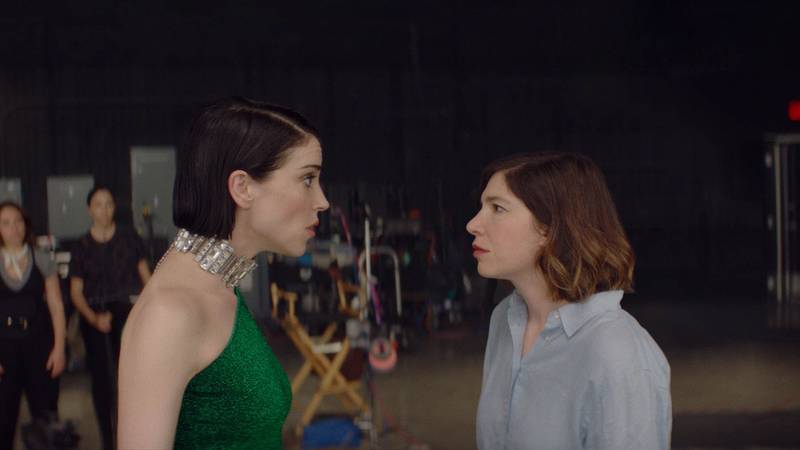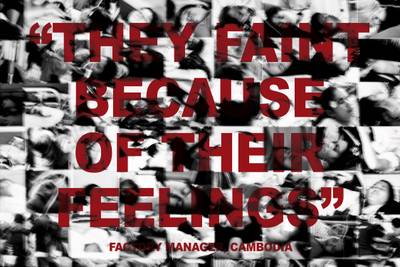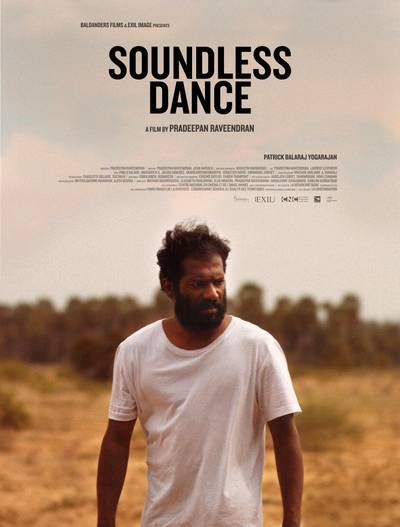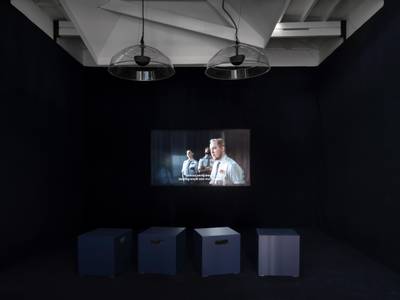

Film still from The Nowhere Inn
Riku Lehtoranta (b.1990) is a freelancer writer, with a key interest in music and all kinds of culture as well as social and academic phenomena. He has been studying musicology in the University of Jyväskylä and has been working with music in general. Recently, he has been particularly interested in music as an audiovisual, performative and social phenomenon.
The Nowhere Inn | Directed by Bill Benz | Duration: 1h 32m | Language: English
The Nowhere Inn (2020) is an American mockumentary and psychological thriller-comedy film, directed by Bill Benz. It tells about Annie Clark, professionally known as a singer-songwriter, guitarist and producer called St. Vincent. Annie Clark is a private person, whereas St. Vincent is a character on the stage and in the public eye. They are both their own people, but St. Vincent has more influence, authority, and charisma than Clark.
The central storyline in The Nowhere Inn is that Clark starts to make a documentary about her music and her life and she hires Carrie Brownstein to direct the project. Brownstein is an American musician, writer, director, comedian and actor, known for such indie rock bands as Sleater-Kinney and Excuse 17. In real life, Brownstein and Clark wrote the script together, and the mockumentary is very pleasant and funny. However, the comedy is not only in the foolery itself, but the humour has its dark, sarcastic and satirical dimension. The Nowhere Inn is making fun of traditional and conventional rock documentaries that are often showing the hectic and pig-like hedonistic side of that privileged lifestyle.
Carrie Brownstein is a close friend of Annie Clark’s in real life, as well. When they begin the project in this fictional film, it becomes clear that there is nothing to reveal: Clark’s character appears to be very ordinary, if not boring. Clark’s ordinariness as a person is also an essential part of the humor in the film because we can see that she just wants to play Scrabble with her band and other tourmates after the show. The humour in this film is conscious of itself and of the role-playing of Clark and Brownstein. As refreshing as it is, there are also moments where it may feel too exhausting to follow a movie so aware of itself from beginning to end.
To push Annie Clark out of her seemingly ordinary and boring routine and make the documentary more interesting, Brownstein encourages Annie to absorb a charismatic and hedonistic stage persona behind the scenes. To do that, St. Vincent/Annie Clark starts to blur her identity and so-called authenticity as an artist. A brilliant feature of this ostensibly fictional film is that we can’t surely know what is true and what is false. Reality and authenticity are growing increasingly bizarre. Also, when Brownstein tries to encourage Clark to transform her image and identity, they both begin to lose themselves or their understanding of who they “really” are. A metafictional level is present throughout the film and tells us broadly about how artificial, fragile, and adaptive human identity can really be.
But is there some kind of inner logic or consistency in this film? I experience that consistency is expressed as the constant chaos of human identity and existence. We try to manage our identity and see our lives as a comprehensive, logical narrative and consistent journey. In reality, we are more or less lost as to our identity and ourselves all the time.
From this point of view, it is interesting to remember that St. Vincent’s breakthrough album, Masseduction (2017), focuses on themes like power and identity, and every album by St. Vincent is also stylistically very different. The intercourse between those two characters (Annie Clark and St. Vincent) and their different roles is a central part of this film. Musically, the album Masseduction has been characterized as futuristic and dystopic electronic pop and glam rock. The live performance around this album is explicitly audiovisual in its entirety: St. Vincent is a latex-dressed guitar hero character, and in a positive way, very alienating to see and hear, not least because of her radical and transformational way of playing electric guitar. The guitar is dominant and always there, but not in a disturbing or conventional way. St. Vincent plays and employs guitar effects in such a variety that it is often difficult to identify as an electric guitar if one is not paying close attention.
The Nowhere Inn shows how popular culture is a very natural way to build a role to hide behind. Rock and pop concerts and performances are very similar to theatre and other fictional performances. St. Vincent is very well-known for his constant roleplaying as an artist, conjuring up such rock and pop artists like David Bowie, Madonna, Lady Gaga, Grace Jones or Björk.
The Nowhere Inn starts with the scene in which Annie Clark is sitting in the backseat of a limousine that is smoothly riding through the desert. In Pitchfork magazine, this scene has been seen as a hint at David Bowie: At first, it looks like a nod to a limousine scene from Cracked Actor, the cult-famous 1975 BBC documentary centring on a profoundly coked-out David Bowie, where he offers a mesmerizingly keyed-up performance for the camera.
Moreover, there are lots of similarities between Bowie and St. Vincent, especially when it comes to her fast fluidity in (gender) identity. St. Vincent has stated that she does not want to “identify as anything,” and that gender and sexuality are fluid. Each of St. Vincent’s albums is also intrinsically and stylistically very different from the others. The only common denominator is some kind of art rock, and so it is when we are speaking of David Bowie. It is interesting that we still have an ideal of authenticity in popular music, especially rock music. Why? A rock concert is a performance. It doesn’t necessarily reveal any kind of “truth” about the artist itself, behind the scenes.
Annie Clark has stated about Masseduction:
“You can’t fact-check it, but if you want to know about my life, listen to this record.”







